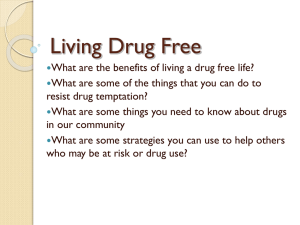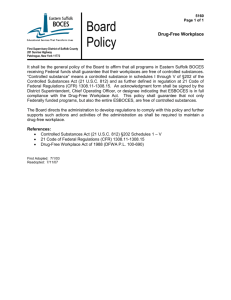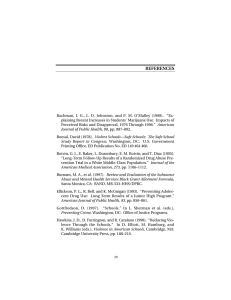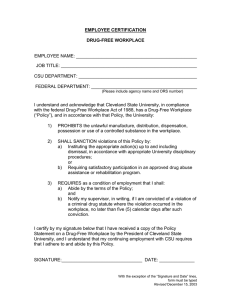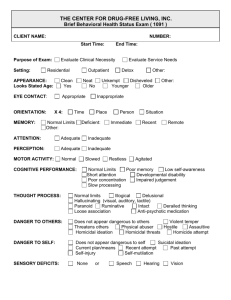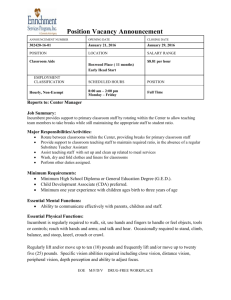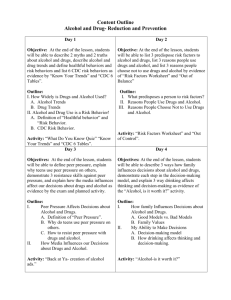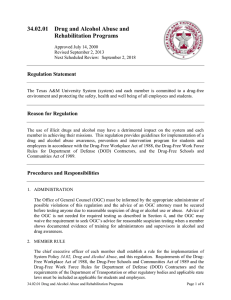Effective Date: March 25, 2004 West Virginia Northern Community College
advertisement
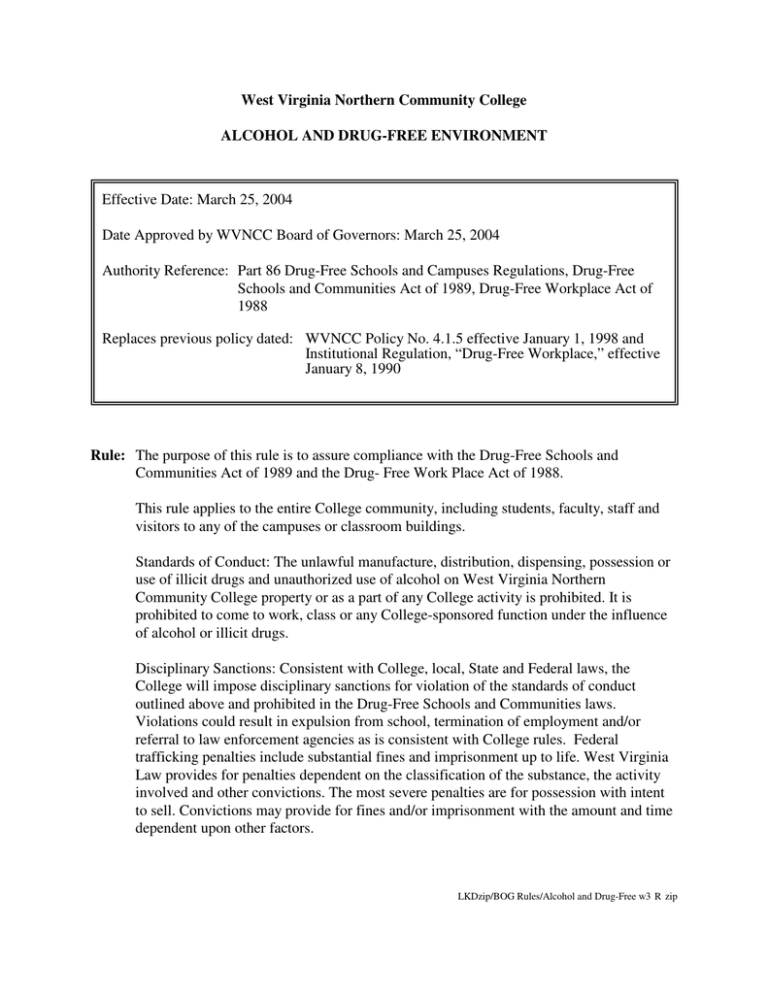
West Virginia Northern Community College ALCOHOL AND DRUG-FREE ENVIRONMENT Effective Date: March 25, 2004 Date Approved by WVNCC Board of Governors: March 25, 2004 Authority Reference: Part 86 Drug-Free Schools and Campuses Regulations, Drug-Free Schools and Communities Act of 1989, Drug-Free Workplace Act of 1988 Replaces previous policy dated: WVNCC Policy No. 4.1.5 effective January 1, 1998 and Institutional Regulation, “Drug-Free Workplace,” effective January 8, 1990 Rule: The purpose of this rule is to assure compliance with the Drug-Free Schools and Communities Act of 1989 and the Drug- Free Work Place Act of 1988. This rule applies to the entire College community, including students, faculty, staff and visitors to any of the campuses or classroom buildings. Standards of Conduct: The unlawful manufacture, distribution, dispensing, possession or use of illicit drugs and unauthorized use of alcohol on West Virginia Northern Community College property or as a part of any College activity is prohibited. It is prohibited to come to work, class or any College-sponsored function under the influence of alcohol or illicit drugs. Disciplinary Sanctions: Consistent with College, local, State and Federal laws, the College will impose disciplinary sanctions for violation of the standards of conduct outlined above and prohibited in the Drug-Free Schools and Communities laws. Violations could result in expulsion from school, termination of employment and/or referral to law enforcement agencies as is consistent with College rules. Federal trafficking penalties include substantial fines and imprisonment up to life. West Virginia Law provides for penalties dependent on the classification of the substance, the activity involved and other convictions. The most severe penalties are for possession with intent to sell. Convictions may provide for fines and/or imprisonment with the amount and time dependent upon other factors. LKDzip/BOG Rules/Alcohol and Drug-Free w3 R zip Alcohol and Drug-Free Environment Page 2 College sanctions will be consistent with procedures used in other disciplinary actions as described in the Student Code of Conduct and Governing Board rule. For employees, sanctions may include oral warning, written reprimand, suspension, termination and referral to law enforcement agencies. Disciplinary sanctions for students may include reprimand, probation, suspension, expulsion and referral to law enforcement agencies. Action for visitors may include referral to law enforcement agencies. LKDzip/BOG Rules/Alcohol and Drug-Free w3 R zip
